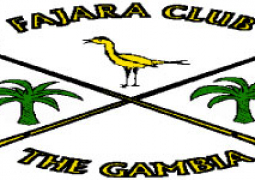
The CBG Governor, Amadou Colley, said The Gambia’s gross international reserves have reduced from US$160.3 million in October 2013 to US$132.6 million as at end-October 2014.
Governor Colley, also the chairman of the MPC, while reading the quarterly report of the committee on Tuesday, said the reduction of the dollar reserves is attributed “mainly” to the weak external sector.
The MPC keeps track of the domestic and international economy and reports to the public quarterly through the media.
The reduction of the reserves indicates the government’s ability to pay for imports and service debts to foreign creditors has reduced, and it makes the country more vulnerable to external shocks.
Although the reserves have dropped, the country’s balance of payments deficit has declined when compared to the figure of 2013.
The MPC’s review of the country’s preliminary balance of payments estimates for the first half of 2014 indicated an overall deficit of US$2.15 million.This is lower than the deficit of US$5.6 million registered in the first half of 2013.
The MPC chairman said the country imports increased by 17 per cent to US$167.80 million while export also hiked by 23.4 per cent to US$54.40 million.
Governor Colley said income from tourism increased to US$57.93 million, reflecting in the main the 11.3 per cent increase in tourist arrivals in the first half of 2014 compared to the corresponding period in 2013.
Bleak economic outlook
The outlook of the Gambia economy for 2014 remains bleak and this according to MPC’s observation is partly as a result of the impact of delayed rainfall on agriculture and partly the adverse effect of the Ebola outbreak on the services sector, particularly tourism.
Governor Colley said the country’s Gross Domestic Product (GDP) is expected to be subdued and the risk is assessed to be on the downside.
Fiscal deficit
The Gambia government has registered a fiscal deficit of D1.4 billion, equivalent to 3.7 per cent of GDP, just in the first nine months of 2014, the CBG Governor said.This deficit is slightly lower that the D1.3 billion registered in the first nine months of 2013.
This increased deficit could be as a result of lower-than-projected revenue performance of the government.
Governor Colley said the country’s total revenue and grants stand at D6 billion, equivalent to 16.2 per cent of GDP, below the target of D6.3 billion, 16.5 per cent of GDP.
“The underperformance of the outturn was as a result of the shortfall in personal income tax and project grants by D5.60 million and D343.4 million below their targets respectively,” he said.
While the country’s revenue performance was below expectations, its total expenditure and net lending increased from D5.98 billion, equivalent to 18.3 per cent of GDP, in the first nine months of 2013 to D7.4 billion, 19.8 per cent of GDP, during the period under review.
This is even higher than the amount of D7.3 billion projected as the government’s expenditure for the nine months.
From the CBG Governor’s explanation, the bulk of the government’s spending was not on capital expenditure, but current expenditure the majority of which was on wages, salaries and allowances, other charges and domestic interest payments.
Domestic debt stock
The MPC’s review of the economy indicated that the government’s domestic debt rose to D16.73 billion in September 2014, equivalent to 45.4 per cent of GDP, from the D12.4 billion, 38 per cent of GDP, it was in September 2013.
Dalasi decelerates
In the year to end-October 2014, volume of transactions in the foreign exchange market increased to US$1.44 billion or 12 per cent.
“Year-on-year, the dalasi depreciated against the US dollar by 18.60 per cent, Euro 12.6 per cent, and Pound Sterling 20.10 per cent,” Colley said.
As the dalasi continues to lose value inflation is hiking.
Governor Colley said consumer price inflation, measured by the National Consumer Price Index, increased to 6.3 per cent in September 2014, slightly higher than the 6.1 per cent in September 2013.
Both food and non-food inflation accelerated to 7.34 percent and 4.84 percent from 7.31 percent and 4.23 percent in September 2013 respectively.
Headline inflation is forecast to exceed the end-December 2014 target of 5.0 percent. Headline inflation is a measurement of price inflation that takes into account all types of inflation that an economy can experience including changes in the price of food and energy.
“However, the MPC projects that inflation would fall within the target in the medium term,” he said.
Based on the rising inflation and falling value of the dalasi, the MPC has decided to leave the policy rate unchanged at 22.0 per cent.
“The MPC would monitor price developments and continue to take appropriate policy actions to contain inflation,” the MPC chairman said.
Read Other Articles In Article (Archive)




